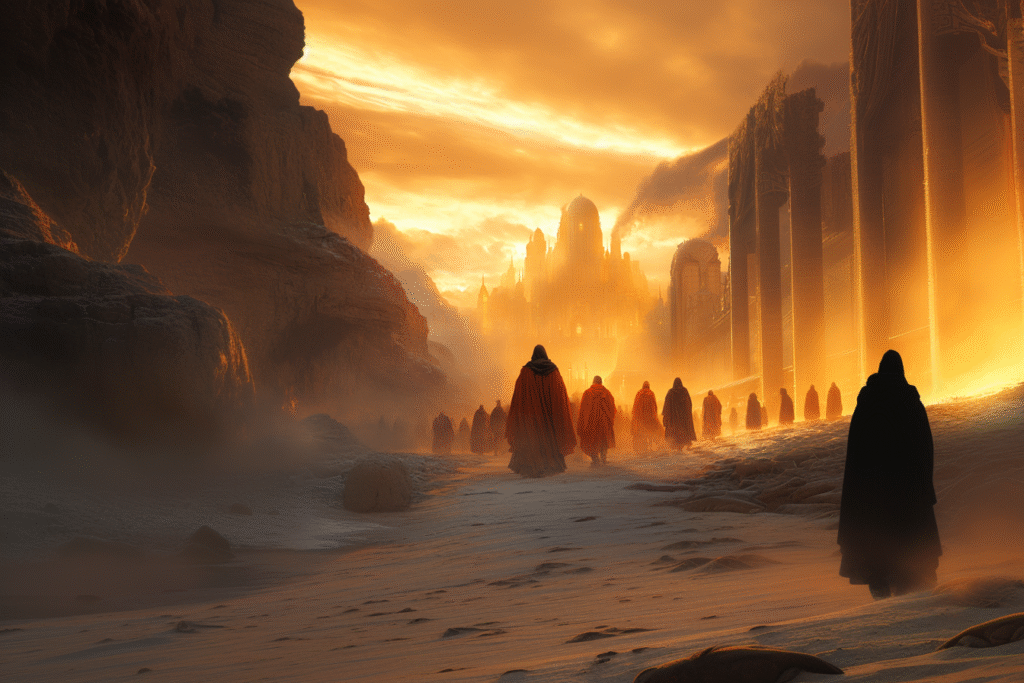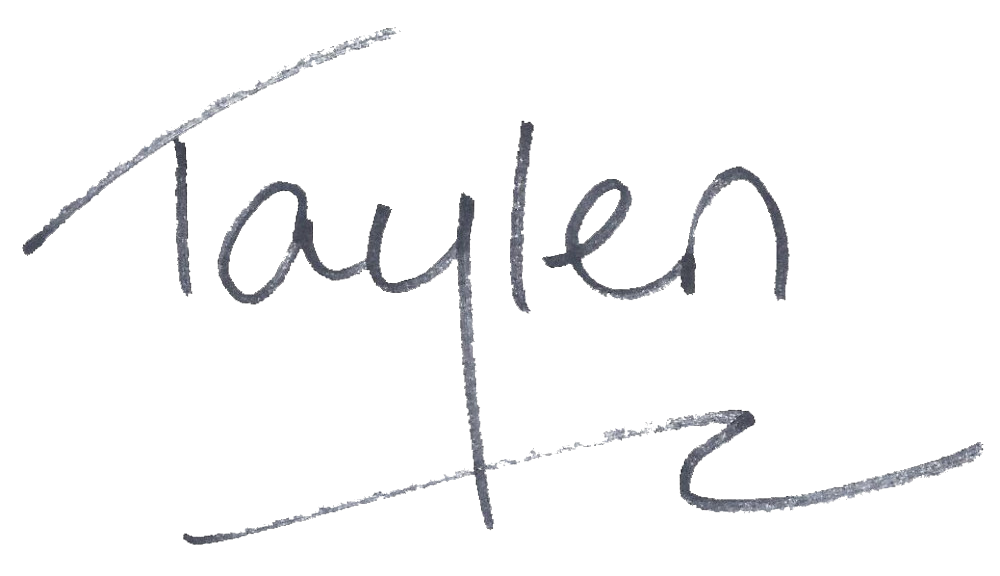
Ah, “high production costs.” The new “it’s not you, it’s me” of the streaming world.
First it was Andor, quietly sliced from five seasons to two. Now it’s The Wheel of Time, which spun valiantly for three seasons on Prime Video before the thread was abruptly severed—despite critical acclaim and a devout fanbase. “Too expensive,” they say. “Too complex.” As if they didn’t know, going in, that adapting a sprawling 14-book fantasy epic might require some…commitment?
We Knew the Quest Was Long
What’s maddening isn’t just the cancellations—it’s the betrayal of the premise. These companies greenlight vast, intricate sagas and loudly promise multiple seasons. They know fans will invest based on that commitment. And then they ghost us. The fantasy TV landscape is starting to look like a graveyard of half-finished epics, each headstone etched with the words “Ran Out of Budget.”
Sound familiar? It should. This is the same move traditional publishers have been pulling for decades: acquire a promising fantasy series, publish book one (maybe book two), then yank the rest of the deal because it “didn’t perform.” Print to net. Abandon ship. Sorry, fantasy fans—guess you’ll never know how it ends.
The Hollywood “No” in HD
It’s hard not to see this as a new variation of the infamous Hollywood No. You know the one: where execs smile, say all the right things, and then quietly do the opposite. Five seasons? Sure. Deep investment in storytelling? Absolutely. Until, of course, the spreadsheet speaks.
And the consequences are cumulative. Fans aren’t fools. Every time a beloved series gets axed mid-arc, trust erodes. People get wary. Viewership drops—not because the shows aren’t good, but because we’ve been burned before. Eventually, audiences will only tune in once the final credits have rolled, which paradoxically guarantees that fewer series will ever reach that point.
It’s streaming’s very own Ouroboros—a system devouring itself. Don’t watch until it’s done. Don’t fund until there’s demand. Round and round it goes, tightening the noose with every “creative decision” press release.
Books Still Finish the Journey—Especially Indie Books
Now for the good news: books, by and large, still honor the long game. But let’s be clear—it’s not traditional publishing carrying that torch anymore. If anything, Big Publishing pioneered the mid-series ghosting move. Fantasy readers know the sting of getting two books into a promised trilogy only to hear that the rest “wasn’t picked up.”
Indie authors, on the other hand, get it. They understand that a finished series isn’t just good storytelling—it’s good business. They thrive on backlist sales. They want you reading book two, three, ten. They want you emotionally wrecked and begging for a spinoff novella. And because they control their publishing timelines, they actually deliver.
Indie fantasy authors are the ones finishing what they start, deepening worlds, and building reader loyalty one completed saga at a time. They want you to invest—because they’re investing too.
Where the Story Actually Ends
So if you’re tired of streaming heartbreaks and mid-season cancellations, maybe it’s time to return to the page. Where the stories still end. The characters still grow. And the only thing standing between you and the finale is how fast you can read.

.
.
Newly Released: Firebird Omnibus — Sylvalight — Roots of the Storm
There’s a problem.
It’s called “not respecting the source material”, and it ruins stories.
We’ve seen a much higher percentage of such things in the past 20 years, mostly because the technology to produce them has gotten so good. I remember Ralph Bakshi’s attempt at The Lord Of The Rings, animated in the style he made infamous in Wizards. The first movie didn’t make enough to warrant the rest. But at least he created the part he COULD make match the books as closely as possible.
The Expanse is a series that reached it’s scheduled end, and was MOSTLY faithful. In the books, Avasarala didn’t have an assassin aide. But it was okay, he filled plot holes the authors had missed. And he was a good character.
Oh, and Alex died instead of someone else because the actor who played him couldn’t keep it in his pants, and they needed to write him out — do a McLean Stevenson for him — and his character was a hero for it.
But then we have some real spooky honkers. The Rings of Power. The Wheel of Time. And the worst stinker of them all: Altered Carbon.
I’m going to focus on that last one, because the egregious shredding of the original source material totally roached their ability to do the third book and have it make sense.
They made the Envoy Corps a creation of Quell, out of the separatist group, the Little Blue Bugs.
They made Takeshi Kovacs the last of the living Envoys.
They made Takeshi part of Quell’s organization, and her lover.
They made Quell’s Unsettlement a contemporary event.
They made Raylene Takahara a good guy and Takeshi’s “sister”.
They changed the Martians to the Ancients for some reason, and de-emphasized them.
All is this together was a stew of altered timelines and cross-wired relationships, and most of them seemed oddly gratuitous. Changing the nature of the Envoy Corps was telling. It was okay for terrorists to have an army of enhanced humans, stripped of every scruple and made into super-soldiers. Because they didn’t want to tick off the United Nations. Because the Envoys were the interstellar shock troops of the UN Protectorate. Any sign of rebellion, and the Envoys paid a visit and wrecked the rebels. They were very much in operation in Kovacs’ time, 200 years after Quell died. He never met Quell.
Because the TV show has no more Envoys, the third book was impossible, as it involved them heavily.
But the biggest change was the least visible. In the teaser of the first episode, a Millsport cop asked Tak who a particular woman was. Tak says “just some bimbo”. So the cop shoots her through her critical stack with a plasma rifle, killing her Really Dead. That woman, in the books, was Sarah Sokolowska, Takeshi’s lover.
In the books, she lived, on the municipal stack for a 200-year sentence. And she was the motivating factor for everything Kovacs’ did in three books. But the most involved was the third book. Tak was on a personal mission to eliminate as many “beards”, the series’ Islamist analog. A priest had executed Sarah and her daughter after Sarah had been paroled from the stacks. Then the priest had blindfolded himself, and told a boat driver to drive in some random direction. At some random point, the priest dropped the stacks overboard.
Tak didn’t know how to find them, when he got back from Sanction IV. But he could kill beards… After he found the priest who executed Sarah and killed him.
The entire third book was underlaid by a plot arc that traversed all three books, mostly when we couldn’t even see Sarah.
They had killed Sarah off. They had killed the Envoys. They made Quell’s time in Takeshi’s lifetime. They didn’t include the Beards. How on Harlan’s World was the third book supposed to work?
It couldn’t.
So the third book didn’t get adapted. They were painted into a corner, and the only place we can get the whole story is from the books.
So I don’t like it when they diddle with the source material too much.
Phew!
I actually enjoyed the first season of *Altered Carbon,* but I hadn’t read the books first. The second season was…okay. If there was ever a third season, I wouldn’t know.
You may have a point; some series do go completely off the rails compared to the source, and I lose interest. But *Andor* didn’t have that excuse.
Taylen.
The unfinished series is why I’ve already practically quit watching TV, except for occasional movies. I don’t do social media: in part because I’m old (plus a better reason, but we won’t mention that).
How do I spend my time? I read. I’m disabled, so I read a LOT. But I stopped starting series until they are finished. Ms Carver explained why better than I could. I’m a recent convert to indie authors. I’ll read (or to be honest, at least start) book 1 and decide if I like the writing and the story. The exception is when each title in a series is written so that it can stand alone. I NEVER buy or read anything that ends in a cliffhanger, at least not anymore, and not knowingly.
I am so very grateful for good books, and the people who write them.
Amen to that! There are many indie authors writing exceptional fiction out there. It’s fun to discover them and tell everyone I know.
Taylen.